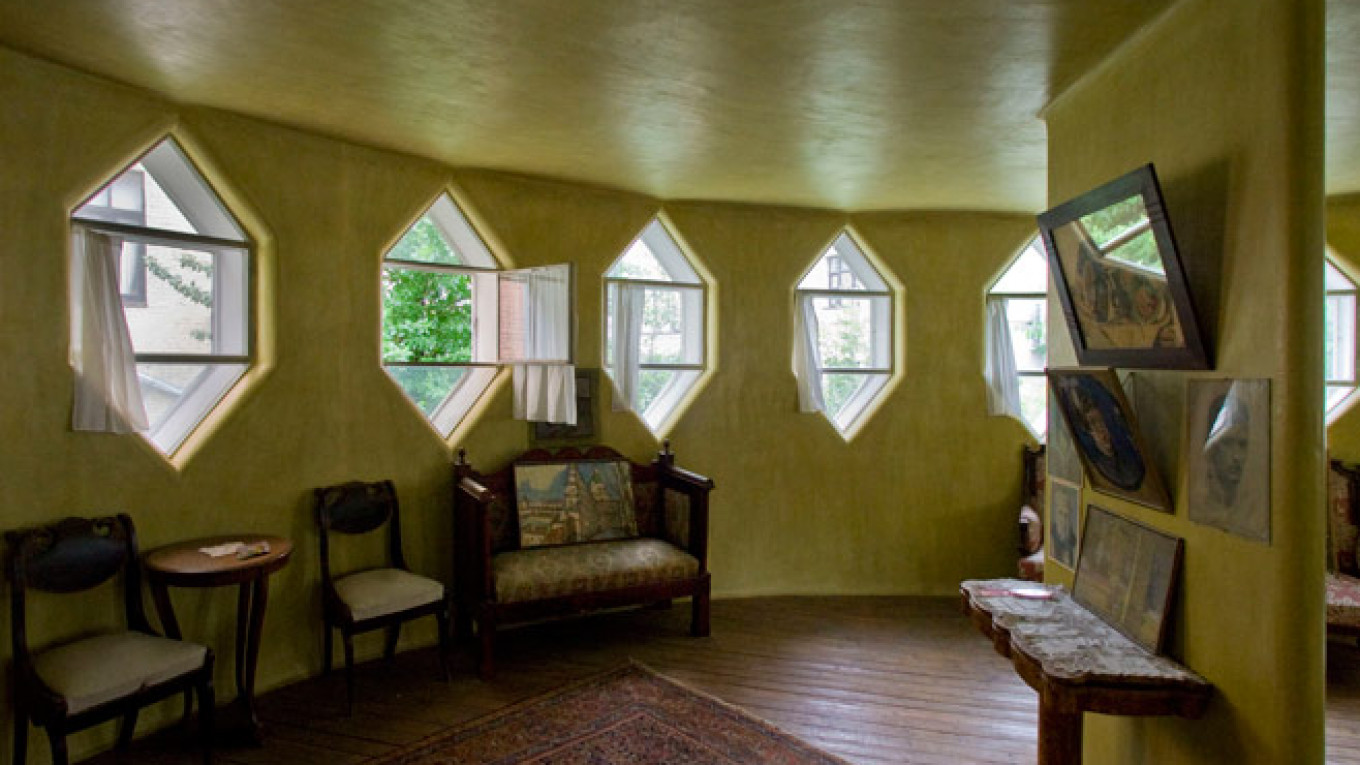Moscow's museum of architecture is celebrating the 125th anniversary of Konstantin Melnikov, the internationally acclaimed pioneer of avant-garde architecture of the early 20th century, with a broad program of events, excursions, and an exhibition of his little-seen works.
The exhibition features some of the architect's original blueprints that were restored for the Aug. 3 anniversary.
"Today we can speak about a Melnikov epoch or even an era," said Irina Korobina, the head of the Shchusev State Museum of Architecture (MUAR).
Although Melnikov's period of active construction spanned a mere 10 years, from the mid-1920s to the mid-1930s, appreciation for his genius and legacy has been growing every year in Russia and all around the world. To mark the architect's 100th anniversary in 1990, UNESCO declared it the "Year of Konstantin Melnikov."
"Each project carried out by Melnikov and each structure was a revelation, an inspiration. He was a pioneer who still inspires architects as well as researchers," she said.
Melnikov introduced unique engineering solutions such as an innovative lattice brickwork system, movable walls, kinetic floors and a free-flow parking scheme that allowed a great number of vehicles to enter, park and leave a structure without having to use their reverse gear.
Deputy head of MUAR Irina Chelkunova said that the architect was ahead of his time. "He was an architect who was born earlier than he was supposed to be. A lot of his ideas couldn't be implemented at the time," she said.
For Melnikov, the main work of his life was his house — the residential building in Moscow on Krivoarbatsky Pereulok that has been embroiled in an acrimonious property dispute between members of his family and the government.
Melnikov built the house in the late 1920s for his family using innovative shapes — two cylinders for the base and rhomboid openings for the windows. It was one of the few private houses built in the center of the capital at the time, when communal housing was the dominant form of habitation and construction.
The architect bequeathed the house to his children, Viktor and Lyudmila. After Melnikov's death in 1974, the house was the center of several legal battles between his children and grandchildren. In the end Viktor, who died in 2006, wrote in his will that he wished the house to become a museum.
There has also been a growing conflict between Melnikov's granddaughters, Yekaterina Karinskaya and Yelena Melnikova, and the local authorities. As the result of the scandal, Yekaterina, who had been living in the house, was evicted in August of last year.
The house was turned into a museum at the end of 2014 with Yelena Melnikova serving as its curator. This architectural gem of constructivism was opened to the public for the first time on Dec. 3, 2014 when MUAR began to bring in small groups to tour the space.
Speaking at the media conference dedicated to the architect's anniversary, Melnikova said that "a lot of my grandfather's ideas were brought to life" during the process of restoring the house. MUAR staff agreed, asserting that by creating a museum, they were able "to save the monument."
Korobina said that MUAR had the responsibility for preserving Melnikov's legacy and added that the museum housed a large archive that was moved there before the legal battles began.
"But since the archive is the subject of [legal] disputes, unfortunately under these conditions we don't have the right to display it, or even to conduct research or restore it," she said.
Pavel Kuznetsov, director of the Melnikov House Museum, said that currently there are "no obstacles" to full state ownership of the house and Melnikov's work, adding that he hoped it would happen "in the next several years." He noted that to maintain the house, a team of restoration workers have installed several sensors in cracks in the building's structure to monitor any deterioration.
Yelena Melnikova also praised the restoration work at the Rusakov Club, located in the Sokolniki district of northern Moscow. The club was constructed in a fan-shaped plan in the late 1920s for the employees of the Moscow Tram Workers' Union.
Chelkunova said that a 3-D model of the Rusakov Club will be presented at a virtual exposition dedicated to Melnikov's work in October. "We attempted to recreate the club's interiors, which were destroyed shortly after the construction of the building," she said.
A wide variety of exhibitions, excursions and events in honor of Konstantin Melnikov and his Moscow architectural legacy will run at MUAR until Aug 20.
For more information, see the Shchusev State Museum of Architecture. 5/25 Ulitsa Vozdvizhenka. Metro Biblioteka Imeni Lenina, Arbatskaya, Alexandrovsky Sad. 495-691-2109. muar.ru.
Contact the author at artsreporter@imedia.ru
A Message from The Moscow Times:
Dear readers,
We are facing unprecedented challenges. Russia's Prosecutor General's Office has designated The Moscow Times as an "undesirable" organization, criminalizing our work and putting our staff at risk of prosecution. This follows our earlier unjust labeling as a "foreign agent."
These actions are direct attempts to silence independent journalism in Russia. The authorities claim our work "discredits the decisions of the Russian leadership." We see things differently: we strive to provide accurate, unbiased reporting on Russia.
We, the journalists of The Moscow Times, refuse to be silenced. But to continue our work, we need your help.
Your support, no matter how small, makes a world of difference. If you can, please support us monthly starting from just $2. It's quick to set up, and every contribution makes a significant impact.
By supporting The Moscow Times, you're defending open, independent journalism in the face of repression. Thank you for standing with us.
Remind me later.






